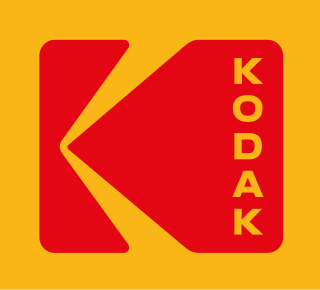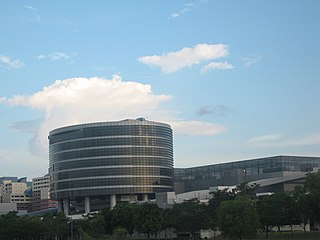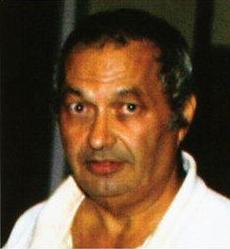Related Research Articles
Espionage, spying, or intelligence gathering is the act of obtaining secret or confidential information (intelligence). A person who commits espionage is called an espionage agent or spy. Any individual or spy ring, in the service of a government, company, criminal organization, or independent operation, can commit espionage. The practice is clandestine, as it is by definition unwelcome. In some circumstances, it may be a legal tool of law enforcement and in others, it may be illegal and punishable by law.

Industrial espionage, also known as economic espionage, corporate spying, or corporate espionage, is a form of espionage conducted for commercial purposes instead of purely national security.

Trade secrets are a type of intellectual property that includes formulas, practices, processes, designs, instruments, patterns, or compilations of information that have inherent economic value because they are not generally known or readily ascertainable by others, and which the owner takes reasonable measures to keep secret. Intellectual property law gives the owner of a trade secret the right to restrict others from disclosing it.
Business is the practice of making one's living or making money by producing or buying and selling products. It is also "any activity or enterprise entered into for profit."

The Eastman Kodak Company, referred to simply as Kodak, is an American public company that produces various products related to its historic basis in film photography. The company is headquartered in Rochester, New York, and is incorporated in New Jersey. It is best known for photographic film products, which it brought to a mass market for the first time.

The Economic Espionage Act of 1996 was a 6 title Act of Congress dealing with a wide range of issues, including not only industrial espionage, but the insanity defense, matters regarding the Boys & Girls Clubs of America, requirements for presentence investigation reports, and the United States Sentencing Commission reports regarding encryption or scrambling technology, and other technical and minor amendments.
The Lawrence Franklin espionage scandal involved Lawrence Franklin, a former United States Department of Defense employee, passing classified documents regarding United States policy towards Iran to Israel. Franklin pleaded guilty to several espionage-related charges and was sentenced in January 2006 to nearly 13 years of prison, which was later reduced to ten months' house arrest. Franklin passed information to American Israel Public Affairs Committee policy director Steven Rosen and AIPAC senior Iran analyst Keith Weissman, who were fired by AIPAC. They were then indicted for illegally conspiring to gather and disclose classified national security information to Israel. However, prosecutors later dropped all charges against them without any plea bargain.

United Microelectronics Corporation is a Taiwanese company based in Hsinchu, Taiwan. It was founded as Taiwan's first semiconductor company in 1980 as a spin-off of the government-sponsored Industrial Technology Research Institute (ITRI).

Noshir Sheriarji Gowadia is a former design engineer and convicted spy for several countries. He was arrested in 2005 and later convicted on industrial espionage-related federal charges.

Carestream Health, formerly Eastman Kodak Company's Health Group, is an independent subsidiary of Onex Corporation which is one of Canada's largest corporations.
David Sheldon Boone is a former U.S. Army signals analyst who worked for the National Security Agency (NSA) and was convicted of espionage-related charges in 1999 related to his sale of secret documents to the Soviet Union from 1988 to 1991. Boone's case was an example of a late Cold War U.S. government security breach.
The American media referred to 1985 as the Year of the Spy because law enforcement arrested many foreign spies operating on American soil. However, the preceding year, 1984, actually had more arrests for espionage in the United States.
Technical Intelligence (TECHINT) is intelligence about weapons and equipment used by the armed forces of foreign nations. The related term, scientific and technical intelligence, addresses information collected or analyzed about the broad range of foreign science, technology, and weapon systems.

Stewart David Nozette is an American planetary scientist, technologist, and consultant who worked for the United States Department of Energy, the United States Department of Defense, DARPA, the United States Naval Research Laboratory, and NASA. He is also a convicted felon for attempted espionage and fraud against the United States. The FBI arrested him on October 19, 2009, charging him with attempted espionage after a sting operation which Nozette's lawyer claims amounted to entrapment. At trial, Nozette admitted attempting to sell U.S. classified information to someone he believed was an Israeli Mossad operative, but was in reality an undercover Federal Bureau of Investigation employee. He pleaded guilty to one charge of attempted espionage and was sentenced, under the terms of a plea bargain, to thirteen years in prison. After serving time at the Federal Correctional Institution, Terre Haute, Nozette was released on November 13, 2020.
Guillermo "Bill" Gaede is an Argentine engineer and programmer who is best known for Cold War industrial spying conducted while he worked at Advanced Micro Devices (AMD) and Intel Corporation (Intel). While at AMD, he provided the Cuban government with technical information from the semiconductor industry which the Cubans passed on to the Soviet bloc, primarily to the Soviet Union and East Germany. In 1992, Gaede turned himself over to the Central Intelligence Agency (CIA), which placed him in contact with the Federal Bureau of Investigation (FBI). The FBI began working with Gaede in a counter-espionage operation intended to penetrate Cuban intelligence using his contacts on the island. During this time Gaede obtained work at Intel Corp. in Chandler, Arizona. Intel Security discovered the nature of his activities at AMD and terminated him, but not before Gaede filmed Intel's state-of-the-art Pentium process from home.

The United States has often accused the People's Republic of China of attempting to unlawfully acquire U.S. military technology and classified information as well as trade secrets of U.S. companies in order to support China's long-term military and commercial development. Chinese government agencies and affiliated personnel have been accused of using a number of methods to obtain U.S. technology, including espionage, exploitation of commercial entities, and a network of scientific, academic and business contacts. Prominent espionage cases include Larry Wu-tai Chin, Katrina Leung, Gwo-Bao Min, Chi Mak and Peter Lee. The Ministry of State Security (MSS) maintains a bureau dedicated to espionage against the United States, the United States Bureau.
Alfred Zehe is a German physicist, professor and author. After American authorities charged him with spying for the East German government in 1983, he became part of a high-profile prisoner exchange between the U.S. and the Soviet Union.
Cyber spying on universities is the practice of obtaining secrets and information without the permission and knowledge of the university through its information technology system. Universities in the United Kingdom, including Oxford and Cambridge, have been targets, as have institutions in the US and Australia.
China is regularly accused by the United States and several other nations of state-organized economic espionage and theft of intellectual property, in violation of international trade agreements. The espionage and theft would not be limited to business, but also include academia and government. The Ministry of State Security (MSS), united front groups, and their affiliates have been reported as frequent perpetrators of such theft. China has repeatedly and vigorously denied the allegations, stating that Western companies willingly transfer technology to get access to China's market. China however also state they are taking steps to address the concerns. In 2019, China banned forced technology transfers via the Foreign Investment Law.
References
- 1 2 3 National Counterintelligence Center (1998). Annual Report to Congress on Foreign Economic Collection and Industrial Espionage (PDF) (Report). National Counterintelligence Center. Archived from the original (PDF) on May 16, 2014. Retrieved April 28, 2015.
- 1 2 3 4 5 "Uncovering trade secrets: the legal and ethical conundrum of creative competitive intelligence". freepatentsonline.com.
- 1 2 Rowe, Elizabeth (January 2010). "Trade Secrets, Data Security and Employees" (PDF). Chicago-Kent Law Review. 84 (3): 749–56. Retrieved April 28, 2015.
- ↑ "Ex-Kodak Exec Had Key Plans, Report Says". Los Angeles Times. Associated Press. December 30, 1996.
- ↑ Kabay, M.E. (October 27, 2005). "Industrial espionage, Part 6: Cases". Network World.
- 1 2 "Ex-Kodak Manager Admits Stealing Trade Secrets". The Augusta Chronicle. Associated Press. August 29, 1997. Retrieved April 28, 2015.
- 1 2 3 4 5 Kurilecz, Peter (February 19, 1998). "Records/Archives in the News 02/19/98 Part 4" (Mailing list message). Retrieved April 28, 2015– via LISTSERV 16.0 Archives.
- ↑ "Ex-Employee Pleads Guilty In Taking of Kodak Data". The New York Times. August 29, 1997. ISSN 0362-4331 . Retrieved August 19, 2019.
- 1 2 3 "Ex-Employee Pleads Guilty In Taking of Kodak Data". The New York Times . August 29, 1997. Retrieved April 28, 2015.
- ↑ Debble, Ben (August 29, 1997). "Ex-Kodak Manager Stole Trade Secrets" (PDF). Savannah Morning News. Associated Press. p. 6D. Retrieved April 28, 2015.
- ↑ "KODAK SAYS 3M USED SECRETS STOLEN BY RETIRED EXECUTIVE". Washington Post. December 3, 1997. Retrieved August 19, 2019.
- 1 2 "FBI: Threats to U.S. National Security".